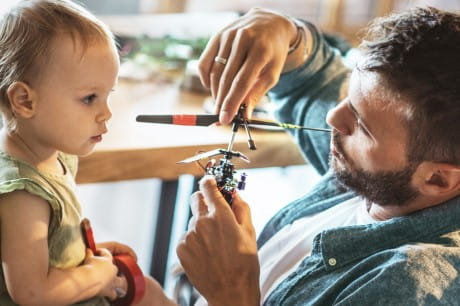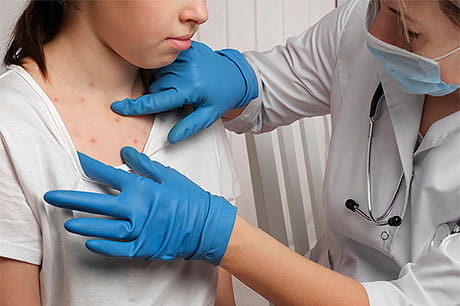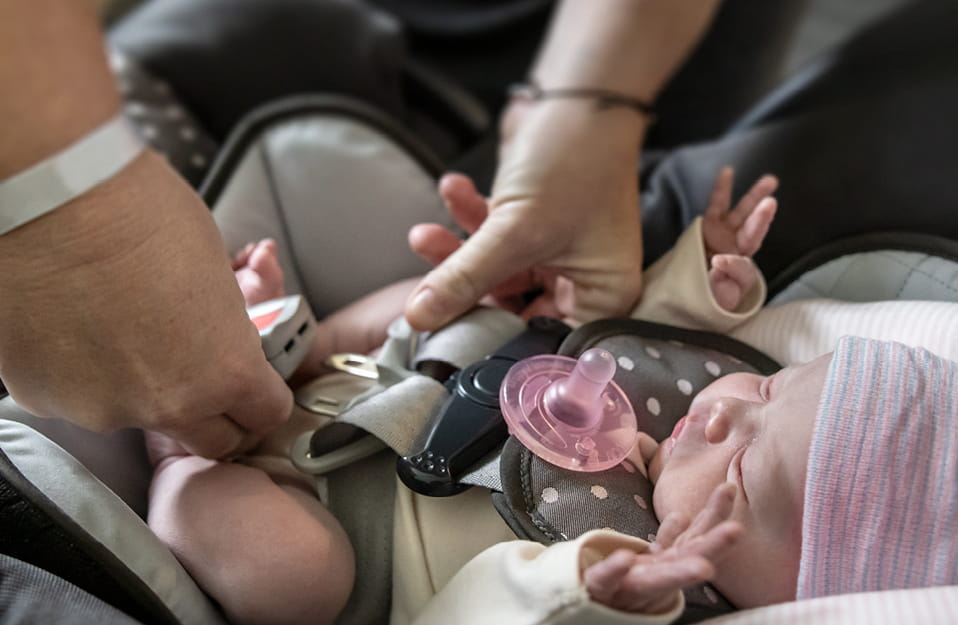Why it’s important to be careful with button batteries
These tiny batteries are everywhere — and they can look tasty to little ones, so handle with caution.
When you’re powering up your fitness watch or your child’s favorite toy, you’re probably not thinking about the type of batteries they use. What’s more? You’re definitely not thinking about the potential for swallowing one. That’s why taking precautions around these often small but mighty sources of power is critical.
What are button batteries?
Also called lithium batteries, button cell batteries are flat, round batteries that look like coins. And they’re the powerhouse behind many everyday household items. You’ll find them in things like:
- Cameras
- Toys
- Car keys
- Watches
- Fitness trackers
- Hearing aids
- Remotes
They range in size, from 5 mm (about the size of an aspirin) to 25 mm (about the size of a nickel). That small size (and a shiny surface) not only makes them appealing to children. It also makes them easy to swallow. While swallowing one can be harmless, it can also spell trouble.
“Many times, if a child swallows a button battery, they’ll pass it without a problem,” says Dr. Karen Ephlin, a pediatrician at Geisinger. “But if they get stuck in the body, that’s when they can cause injuries.”
Why are button batteries dangerous?
Button batteries can be problematic in more ways than one. They can get stuck in your child’s nose or ear. A stuck battery may require a trip to the doctor for removal. And if your child does swallow one, it can hurt.
“When a button battery comes into contact with saliva, it triggers an electrical current,” says Dr. Ephlin. “That reaction can lead to chemical burns in the esophagus and even erode the airway.”
Swallowed battery? Look for the signs
Think your child may have swallowed a battery? Look for these possible symptoms of button battery ingestion.
- Coughing
- Trouble swallowing
- Sore throat
- Vomiting
- Chest or abdominal pain
- Loud breathing
- Blood-tinged vomit or saliva
It’s important to note that your child may not show any signs of distress at first. They may even feel fine. That’s why timeliness matters. If you suspect your child swallowed a battery, stay calm. Call 911 or take them to the nearest emergency department quickly.
“Button batteries can cause injuries in as a little as two hours,” Dr. Ephlin says. “Getting immediate medical attention can help reduce the likelihood of permanent damage.”
Prevention is everything
To keep everyone safe around button batteries, consider doing these things:
- Secure any devices that use button batteries. Keep the case around the batteries closed tightly. For added protection, put tape over battery compartments.
- Store loose batteries out of reach
- Dispose of old batteries
And if you get new devices, check the type of batteries they use so you can secure them properly. By practicing good habits around lithium batteries, you can keep everyone protected.
Next steps:
How old is too old to see a pediatrician?
Household cleaners look tasty? To your child they might
Meet Karen Ephlin, MD





